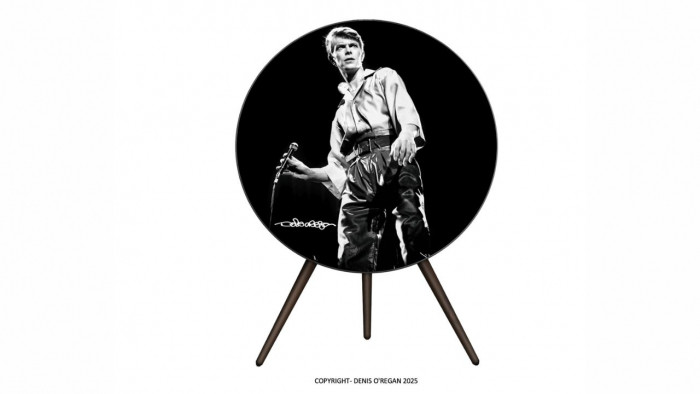Out-of-body experiences were once the preserve of the nearly dead, victims of alien abduction and Sixties musicians. Not any more. Now anyone can have a go. Our earthly form has become almost secondary to a new virtual self that — thanks to the global digital network — can be in a billion places at once. If omnipresence is a sign of divinity, we should all start mustering some disciples.
Mobile conduits such as smartphones and tablets have permanently wired us into the grid, and we’re thrilled with it. Whatever our want or need, whether it’s to learn, consume or spout opinions, it provides an app or website to satisfy. It’s the Jeeves to our Wooster, Cato to our Clouseau, Gromit to our Wallace.
And it’s not just functional; it’s exciting and compelling. Spontaneous holidays are booked in minutes; 35-year-old bankers can battle aliens alongside Latvian teenagers; people share videos of pets doing the funniest things. It’s a love affair with information, but are we getting a bit clingy?
“Half of the UK population has a smartphone,” says The Guardian’s technology editor Charles Arthur. “This means that email and the internet are by people’s sides, all the time. We’re becoming more and more connected. It’s a Wikipedia world where you can find things out whenever you want. That means more distraction — you can be tempted to abstract yourself from where you are. Technology has become more personal, but equally, we’re becoming a little more impersonal — we try to escape from humans around us to connect to the machine.”
This behaviour is hard to miss. Our eyes are permanently down, as if gripped by a bingo epidemic, turning streets into bipedal dodgem rides. There are people so needy they receive phantom phone buzzes in their pocket.
A new study by the University Of Chicago’s Booth Business School shows that our fourth most frequent urge — behind eating, sleeping and alcohol — is to use media devices. Yes, above sex. Even more telling is that when they studied the strength of those urges, 42 per cent of subjects trying to resist media devices failed. This raises the question: is this a harmless infatuation or are we on the cusp of becoming antisocial digital junkies?
“The phenomenon is too new for us to know the long-term effects,” says psychologist Professor Mark Griffiths of Nottingham Trent University. “I don’t think anyone’s addicted in a clinical sense, but we have become reliant on information technology. So much so that we get stressed when things shut down. We feel isolated without broadband, feel angry without access to emails. We suffer withdrawal symptoms. It’s like our left arm is missing.”
This kind of dependence on digital information could have worrying consequences. “There’s a danger we’ll lose our offline resilience,” adds Dr Richard Graham, clinical lead in technology addiction at London’s Capio Nightingale Hospital. “We might be unable to judge people using common sense because we always pre-vet them online. We may be successful online, but while we still have bodies, we need to survive offline.”

(Above pic: The 2011 Chevrolet Volt has a voice-control system)
INFORMATION OVERLOAD
Understanding the psychological effects of this super-connectivity may be years away, but that isn’t preventing the potential impacts from being debated. Fears over patchy attention spans live alongside claims that the internet boosts brain power. Some think our memory will diminish, others believe it will improve.
One study by psychologist and author of Training Your Brain For Dummies Dr Tracy Alloway related being on Facebook to an increase in IQ and working memory, yet suggested Twitter had the opposite effect. Perhaps the biggest fear, though, is over our ability to socialise.
“Some research shows that online communication has made us less empathetic,” says Alloway. “We’re more connected, but the connection is arguably more superficial. That reduced empathy, combined with the sense of anonymity people have on the internet, means people can slip into cyber-bullying.
“However, technology just unlocks what’s already in us,” she adds. “Our online personality is similar to our real one. If you’re an extrovert, you’ll probably post lots of photos. If you’re narcissistic, you’ll probably post lots of photos of yourself.”
Our online personality provides other problems. One of the downsides of our digital ubiquity is that our physical self can’t be everywhere at once to keep tabs on it. That drunken, angry tweet you made during the last World Cup is still out there to be accessed by billions of people, including Robert Green.
There’s also a question of ‘technostress’. Humans have always sought information, entertainment and interaction, but never to this extent. You couldn’t attach photos to smoke signals, do face-to-face telegraphing or tweet your thoughts about The X Factor using carrier pigeons.
Even life 20 years ago seems antiquated. Meetings were arranged by individual conversations rather than a ‘reply all’ email. To find out if the trains were running on time, you had to go to the station. If you wanted to show someone your holiday snaps, you lured them to your house with pineapple and cheese on sticks. Phone boxes were even used for phoning people.
To anyone born in the digital age, this will sound like nostalgic whinging, but things took time. They now arrive instantly and all at once. “There’s so much information that people can struggle to filter it, and instead are totally overwhelmed,” says Griffiths.

(Above pic: An Apple concept for 'Black Hole', a device for 2020)
UNSTOPPABLE FORCE
Of course, people can still opt out of digital life — for now. But, slowly, the world is being pushed exclusively online. Banks and hotels offer special ‘internet rates’, vast swathes of media are restricted to the web, and there’s no way you’re going to find the best price for anything without the help of a meerkat.
Eventually, people will have three choices: embrace, surrender or be cast aside. As history tells us, progress stops for no man. Instead it stampedes like a herd of elephants towards its goals of ‘easier’, ‘faster’, ‘better’ and ‘further’. In the blink of an eye, we’ve evolved from computers the size of bedrooms linked by thick cables, to computers the size of bedbugs linked by thin air; from pundits commentating on overseas football matches via telephone, to being able to watch those matches on your phone — while holidaying in the tropics. And for those keeping up, integration with the grid is set to become increasingly intimate. If you think we’re mentally and emotionally fused to our devices now, just wait a few years.
“It will start with the ‘internet of things’,” says futurist Ray Hammond, author of The World In 2030. “All our devices will become linked. And in two to three years, voice-recognition will be so good we’ll be talking to them like friends. By the end of the decade, they’ll almost be able to read our minds.
As we use them, they’ll learn. We’ll be able to have conversations with them. It’s not autonomous intelligence, but it is artificial intelligence. They’ll also be smaller. Some will still be handheld, but others will be items of jewellery, buttons or badges, or augmented reality glasses and contact lenses.
“In 20 to 25 years, people will have devices fitted under their skin,” he adds. “We’ll be super-augmented, connected to every object on Earth. You’ll be able to control everything you own with your mind, to think a tweet or an email. We’ll even talk to each other that way. I think a message to my device, it sends it to your device, and your device tells you. Now, just imagine if those devices had translation capabilities. Why learn languages? And if you want private thoughts, you simply think your device into stand-by mode.”
THE EVOLUTION OF MAN?
So this is our inescapable future: a world where we can change channels with a thought, like a home entertainment Jedi; where, if we forget to mute our brains, people will find out what we really think about them; where a voice in our head tells us we’re running low on cheddar, even if our fridge doesn’t speak English.
Will we become super-beings able to multi-task on a transplanetary scale? Or will we be so reliant on technology that we won’t be able to blow our own noses during a power cut?
“We’re evolving into the successor to the non-digital human,” says Hammond. “Technological innovation always, eventually, leads to progress. What we can’t predict is what will happen when the machines become more intelligent than us.
“The advantages far outweigh the disadvantages,” adds Griffiths, easing any Skynet-related fears. “People will adapt. Future generations will be better at dealing with technostress. It’s suggested we’ll be less sociable, but how do we define sociability? There are disorders where people can’t socialise face-to-face, but they can socialise online.”
While new frontiers are always laced with fear, especially when they involve mind-reading kettles, there are clear benefits to being wired-in: the democratisation of information; the ability to stay in touch with anyone, anywhere; bidding on eBay from the bath. The biggest certainty, though, is how humanity will react to journeys into the unknown. We’ll do what we did when people feared the first trains because they thought the human body would melt at 30mph: we’ll climb aboard anyway.










